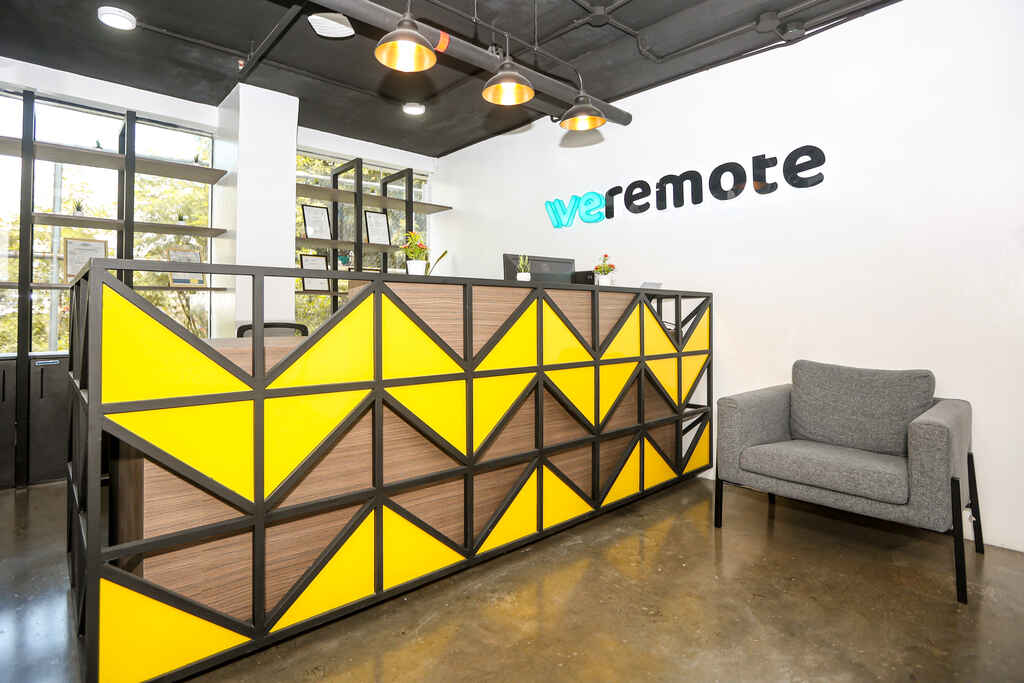Are you a startup whose goal is to land on the Fortune 500 list? Well, you’ve come to the right place. Okay, that might be too high a reach. But, hey, we can always dream and strive to make it come true, right?
Of course, every company, be it a fledgling firm or an established organization, has the ultimate goal of succeeding in its industry. Startups may have their work cut out for them, but on the other hand, the initial steps to reach that goal are much simpler: Establish the business, settle down in a private office space, and get the right workforce.
The first objective is a given. That’s how you start any business. Establish it first by registering the brand name and the company (whether it’s a sole proprietorship, partnership, or corporation) with the appropriate government agencies. Once you’re legal to operate, the next most important step needs to be taken: getting a private office.
Why is a private office space vital for any business?
A lot of people may raise an eyebrow at the idea of having a physical office for a business. Aren’t most of us still working from home because of COVID-19? And even though the pandemic has thankfully abated in many parts of the world, allowing people to more or less get back to normal (like watching a live NBA game in the actual arena and without a face mask!), requiring employees to work in the office again is still a hotly debated issue.
In countries like the Philippines where commuting to and from work is a daily struggle, working from home is highly preferred. While some employers think that the setup has a negative impact on productivity, recent studies have suggested otherwise.
A study by Stanford University involving 16,000 call center workers showed that their productivity increased by 13% among those working from home. And this was even before the pandemic hit the world. The same study also found out that there was also improved satisfaction among the workers, which could also explain why the rate of resignation among them was reduced to half.
So why then would a startup bother with putting up a physical office when it can let its employees work in the safety and convenience of their homes? Because you’re a startup.
As a business just beginning its journey into the field, a startup doesn’t have an identity to speak of yet, and no company culture to rely on. In the crazily competitive world of business, being a virtual unknown is almost always a kiss of death. Even when you have the best product or service, people would simply pass you up if they don’t know where you operate from. You would be regarded as a fly-by-night entity that can’t be trusted.
Company culture helps in attracting the ideal, if not the best talents that should make up your workforce. That culture also nourishes employees into being the best that they can be. Without a private office, you can’t build any substantial kind of company culture, and sooner or later, that would reflect on the products you create or services you render to your clients.
In effect, a physical office is one of your most important investments, alongside the hiring of the most competent people you can lay your hands on if you are starting a business.
So, are you convinced now about getting a private office for your startup? Good. This brings us to another important question that needs to be answered.

What is the ideal working environment for your business?
We did say that investing in a physical office for your company should be a priority. But this should be within reason, meaning, there is an available budget for it. If you would be taking away valuable resources for the development of your product or the hiring of enough employees, then you need to pause and think about your other options.
Maybe you have a spacious garage that you can use instead. It might be unglamorous but there’s enough reason to consider it. We can think of five: Amazon, Apple, Disney, Google, and Harley-Davidson. Yup, every one of them started out in a garage.
If you don’t have a garage or it’s not big enough to hold your big dreams, another option is to rent a room or an apartment unit for your private office. And depending on the space’s size and how many you are in the fledgling company, you might even share it with another startup so you will not have to pay for the rent in full.
But then, would it be an ideal workplace? Well, it’s really up to you to make it work.
What do you do when you can only afford a small private office?
We need to reiterate: Yes, you need a physical office when you are a startup company but it should be within your budget. If you will be renting, you need to make sure that the monthly payments can be sustained during the period when your company is still getting a foot in the business.
This means not biting more than you can chew. Settle for a smaller private office so that the rent is manageable and would not put a strain on your company’s resources at a time when you are still trying to establish it. You can always move into a larger space once you start earning and expanding.
Of course, a small office should not hamper your employees’ productivity or have a negative effect on their mental health.
Luckily for you, there are several ways to make your private office a happy place to work in. Here are just a few.
- Set a budget and timeline – this is to make sure you do not go overboard on your spending. It will also give you a goal for additional motivation to succeed, knowing that moving into a bigger and better workplace is in your company’s near future.
- Become a minimalist – this shouldn’t be hard to do. The limited space will force you to install fewer things in there.
- Embrace traditional design styles – these normally adhere to minimalism as well and give off a clean and more spacious vibe.
- Take inventory – make sure everything in the office is necessary. Now is not the time for accessories and whatnots.
- Go for DIY office décor – yes, you can still decorate your private office. It can be challenging to be inspired and stay productive when you’re in a drab and boring space. Check out online sources for inspiration on how to make your small private office your own version of “the happiest place on Earth.”
- Rent storage space – another necessary expense if your company deals with a lot of inventory. You simply cannot keep them in a small office even if by some miracle they all fit. Working in a cramped environment can give your employees mental anguish.
- Invest in a layout plan from a designer – a professionally made layout plan ensures that your small space is maximized and the comfort of your employees is considered.
Now that you know what you can do with a limited space, the next thing to do is to make sure that it’s conducive to working. This can make employees look forward to going to the office and motivate them to accomplish their tasks.
10 Practical Tips To Go From Cramped to Productive
With these tips, you can be sure that even with the limited office space to work in, your team will enjoy being in a physical office and remain productive. For startups, this is half the battle won.
1. Go for space-saving, multifunctional office furniture.
A quick search on the internet should reveal a ton of space-saving products that will perfectly fit your small private office. These are not only practical but, more importantly, well-designed to inspire productivity. It’s also wise to choose office furniture that serves other functions, such as a desk that has drawers for storage.
2. Use common areas for another purpose.
With the right design, your office’s pantry or even washroom can become storage spaces for company supplies.
3. Keep things that are absolutely necessary.
Everything that you put in your office should have some kind of practical and much-needed use. If you haven’t used something in a long while, it most likely won’t be needed in the office.
4. Do away with paper.
By going digital for most and if not all of your data, you not only save on copy paper but also on printer ink and electricity. Printed copies of documents also pile up, and eventually you will be hard-pressed to find storage for them, adding clutter to a small place. Paper can also be a fire hazard.
5. Make use of natural light.
If possible, install windows in your office. Natural light makes any space look bigger and brighter, and helps you save on electricity. You can use blinds or curtains when the glare from the sun becomes too intense.
6. Adopt a clean-desk policy.
Cluttered desks will make even large offices look cramped and disorderly. Mobile storage bins can be provided where employees can put away their bags, mobile phones, and other belongings.
7. Stay organized.
One advantage of a small private office is that it is easy to put things in their proper places so that you will know where to find them when the need arises. For best results, use storage boxes and label these with their contents. Staying organized will also help keep the office looking neat and tidy.
8. Decorate strategically.
Yes, you can still put decorations in your private office to show off your brand and instill a sense of pride and belongingness in your team. You can have your walls painted with your brand’s colors and display your logo on your door. Just make sure that everything blends well with the overall design of the office.
9. Incorporate nature.
Some refreshing greenery inside the office is good for tired eyes. Indoor plants also improve air quality, especially in small spaces.
10. Use color to make a small office space look bigger.
Interior design experts recommend using green, blue, or soft tones of white for the wall paint as these colors exude an atmosphere of wide spaces. If your office has molding and trims, you can have these painted in a brighter color. This will make your walls look larger, giving the room the appearance of being more spacious.
By following these tips, you will ensure that your team members will enjoy working in the office, no matter how small it may be. A happy employee is almost always productive, which leads to you hitting your targets. Soon enough, you may see your startup growing, which means you will most likely need a bigger space.
What if you still can’t afford a private office? Well, we’ve got the perfect answer for you: coworking.

Why a Coworking Space Is a Good Alternative
For those unfamiliar with the term, “coworking” means working inside a place where other people who are not necessarily your co-employees also work. Coworking spaces now abound, thanks to the steady rise in the number of startup companies that prefer such an office.
These shared creative spaces have become more sophisticated too, in order to meet the ever-changing demands of clients. Coworking spaces offer a number of amenities, such as high-speed internet, discounts on function rooms, 24/7 access, and even unlimited coffee. Some coworking facilities also have free parking.
What’s even better is that the rent is much more affordable. The arrangements can be changed depending on the startup’s needs and of course, budget. If you still need some convincing to take your startup into the coworking experience, we can think of at least 7 reasons for you to take the plunge.
Benefits of Coworking for Both Employers and Employees
To say that the coworking space is something revolutionary for the business sector is an understatement. Such an arrangement has allowed startups to quickly establish their identity and prove their legitimacy, all without the prohibitive cost that renting a full-fledged office space in a condominium building entails.
Here are a few more reasons why coworking is the best thing to happen to startups.
1. Affords a sense of community – your employees will be working in an environment of like-minded individuals with one goal: to succeed.
2. There’s work-life balance – these coworking spaces are usually situated in commercial/business areas where there is an equal opportunity to unwind and relax after a tiring day at work.
3. Offers flexible working hours – since coworking spaces are usually operational 24/7, different working hours can be accommodated.
4. Provides an opportunity for networking – with different businesses housed under one roof, it is inevitable that people would meet other people, companies talking with other companies, opening the opportunity of working together or helping one another.
5. Easier to meet clients – as mentioned previously, coworking spaces are right smack inside commercial and business areas that are normally the hub of transportation routes, making it easier for clients to come and visit.
6. Elicits increased productivity – a coworking space is designed to help employees focus on their tasks, with minimal to no distractions, unlike if they are working from home.
7. A respite from WFH – for many of us, it’s been a tough two years or so of constant online meetings and enduring the heat while working from home (not everyone can afford an air conditioner). Going back to the office, even if it’s a coworking space, is still a good change of pace in an employee’s life, which can be beneficial to their mental health.

How To Choose the Right Private Office and Coworking Space for You
Private offices and coworking spaces are not created equal. Some would have better offerings than others. You would do well to practice due diligence and check out as many options as you can so you can to see which office setup one would suit you best.
The best private office or coworking space for your startup is one that will not only offer you the most ideal working place for your team but also take care of the small details, such as getting good internet connectivity. If this is what a private office or coworking space can offer you, then by all means take it, so you can focus on the most important task you need to do: grow your business.
Weremote stands as a community where professionals and businesses thrive, offering a dynamic environment for growth. As the coworking brand of Wrkspace Office Management and Solutions Inc., Weremote continues to foster professional development and build vibrant communities. Weremote is a portfolio company of AHG Lab, the largest independent venture builder in the Philippines.
